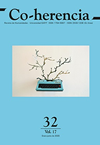“If I do not have any money, why do you want my inheritance?”: The Figure of the Beggar in the Poetry of Joaquín Pablo Posada
Main Article Content
Keywords
Beggar, figures of laughter, popular culture, colombian poetry, Joaquín Pablo Posada
Abstract
The popular figure of the beggar is characterized by his joy, comicalness and social self-exclusion. In the nineteenth century, a new approach, one of a realistic nature, emerged around this character. This paper aims to recover to critical attention the poetic work of the Colombian Joaquín Pablo Posada, practically forgotten these days, in order to examine how he shapes the figure of the beggar in a time of transition. The findings show the existence of a hybrid imaginary (halfway between the cultured and the popular) of a jocular-serious nature. On the one hand, traditional traits are maintained, which include the beggar within the festive tendency. On the other hand, a modern denunciation is introduced about the beggar’s physical and moral sufferings, which challenge the discourse of bourgeois elites, without forsaking its central scheme. In the paper’s conclusions, the complexity of Posada's character is compared to other poetic subjects constructed during the nineteenth and twentieth centuries, which usually adhere to a single face of this figure, either the traditional or modern trait.
Downloads
References
Bayona Posada, J. (1946). El Alacrán Posada. Bogotá: Editorial Santafé.
Beltrán Almería, L. (2002). La imaginación literaria. La seriedad y la risa en la literatura occidental. Barcelona: Montesinos.
Beltrán Almería, L. (2016). Estética de la risa. México: Ficticia.
Carroll, W. C. (1996). Fat King, Lean Beggar. Representations of Poverty in the Age of Shakespeare. Cornell: Cornell University.
Castro Carvajal, B. (2007). Caridad y beneficencia. El tratamiento de la pobreza en Colombia 1870-1930. Bogotá: Universidad Externado.
Castro Carvajal, B. (2012). Población y sociedad. En B. Castro Carvajal (coord.), Colombia. La construcción nacional (pp. 183-226). Madrid: Fundación Mapfre.
Costa, M. (1994). El poeta y el bufón Antón de Montoro: algunos aspectos dramáticos de su poesía. En F. Pedraza y R. González (coords.), Los albores del teatro español. Actas de las XVII Jornadas de teatro clásico (pp. 45-58). Almagro: Universidad de Castilla La Mancha.
Costa de Lima, F. y Filippo, B. (2012). Carnaval, um território de crise: as forças em debate no caso do Cristo mendigo (Beija-Flor, 1989). Textos Escolhidos de Cultura e Arte Populares, 9(1), 121-142.
De la Vega, F. (1946). Introducción. En J. P. Posada, Poesías (pp. VII-XXXVI). Cartagena: Velamen.
Fábrega, V. (1983). Poesía festiva de Panamá y Colombia. Panamá: Dutigrafía.
Frenzel, E. (1980). Diccionario de argumentos de la literatura universal. Madrid: Gredos.
Gómez Restrepo, A. (1956). Historia de la literatura colombiana (Vol. 1). Bogotá: Villegas.
Jaramillo, D. (2009). Antologías. En M. M. Carranza (ed.), Historia de la poesía colombiana (pp. 617-698). Bogotá: Casa de Poesía Silva.
Koestler, A. (1964). The Act of Creation: A Study of Conscious and Unconscious Processes of Humor, Scientific Discovery and Art. Londres: Macmillan Company.
Losse, D. N. (1979). The Beggar as Folk Character in African Literature of French Expression. Ba Shiru, 10(1), 14-19.
Márquez Villanueva, F. (1985). Literatura bufonesca o del loco. Nueva revista de filología hispánica, 34(2), 501-528.
Menéndez Pelayo, M. (1952). Historia de la poesía hispanoamericana (Colombia). En Literatura colombiana. Estudios críticos (pp. 251-344). Bogotá: Biblioteca de Autores Colombianos.
Posada, J. P. (1946). Poesías. Cartagena: Velamen.
Woodbridge, L. (2001). Vagrancy, homelessness, and English Renaissance Literature. Illinois: Board of Trustees of the University of Illinois.




